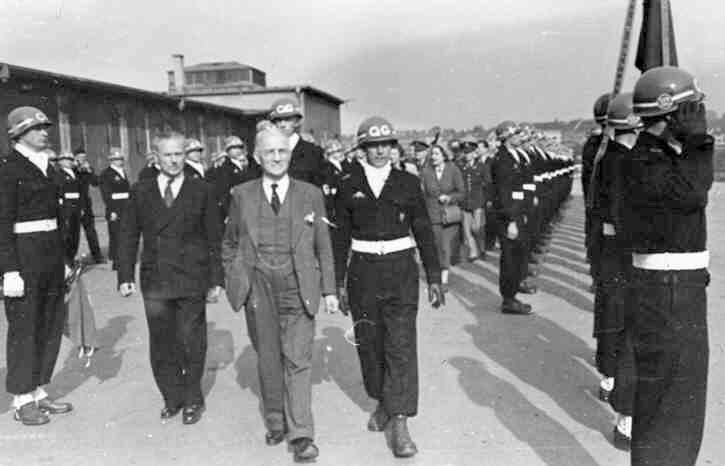Dieva Putniņi

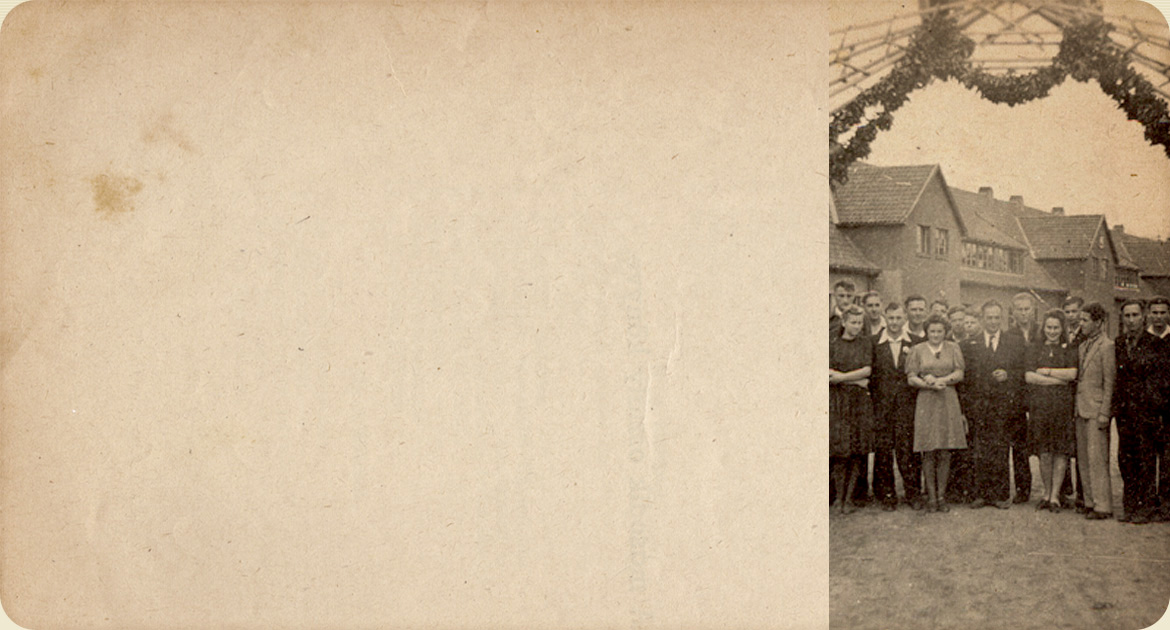
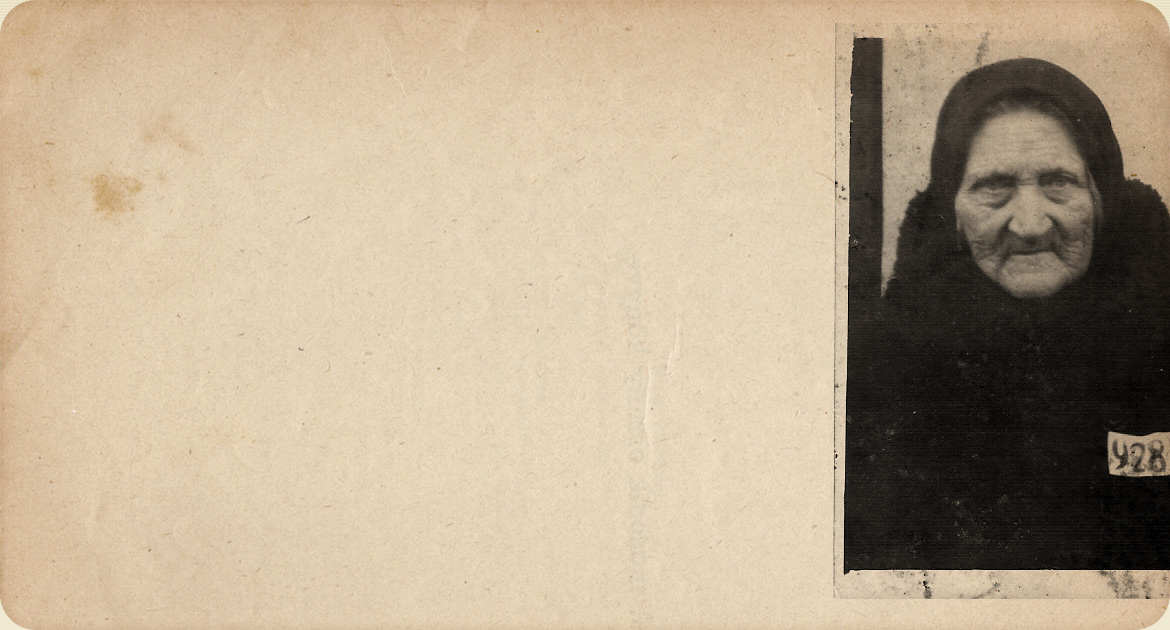
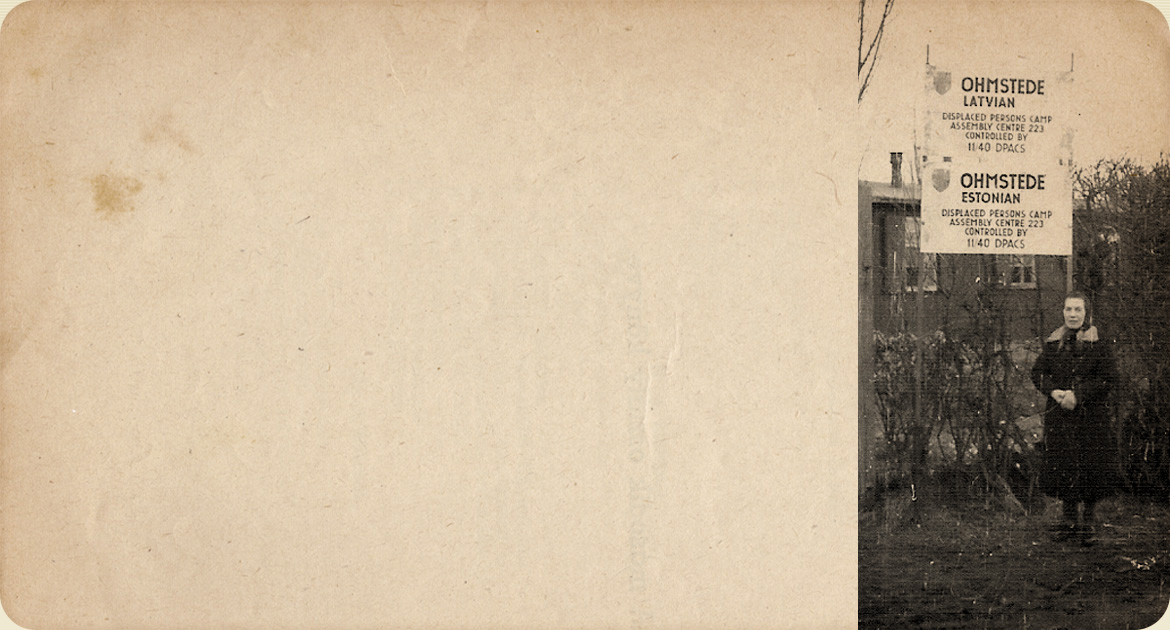

The lives of war-traumatised refugees changed when entering the DP camp gates. This is precisely expressed by Erik Dzenis: ” from this moment in autumn of 1945 our lives entered a different phase, as our personal existence was no longer endangered”. Despite the difficulties and sometimes hopelessness of life in the DP camps, people had attained something important - security and the ability to continue to live.
Before arriving at these gates, Latvian refugees had undergone hunger and terror during dangerous journeys by ship, rail or over the roads of ruined Germany, Poland or Czechoslovakia. But it was hardest for the Latvians who were in the Russian Zone at the end of the war. Only with cunning and hiding could they reach the safety of the zones occupied by the Western nations. Russian army units in East Germany tried to prevent this and force the refugees to be repatriated to occupied Latvia, where they could expect reprisals or deportation to Siberia. Even a more dramatic situation was created by the fact that there were many children, elderly and infirm among the refugees.
Eventually, after reaching the security of the DP camps, a long period of uncertainty began, with no regular work, nor the possibility to care for a family or plan a future. The fate of the refugees was in the hands of politicians and administrators. For some refugees this period of change and uncertainty lasted more than five years.


Photo from Pāvils Menska
ID 719
Refugee ID photographs of the Menska Family



Photo from Viesturs Šķidras
ID 599
By the gates of Ohmstede DP Camp
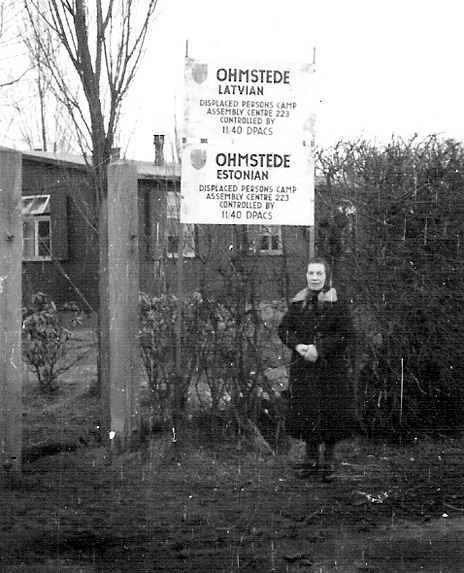


Photo from Maira Valdmane
ID 890
Wolterdingen DP camp gates



Photo from Zigrīda Francis
ID 1632
The gates of Alterfrade agricultural school
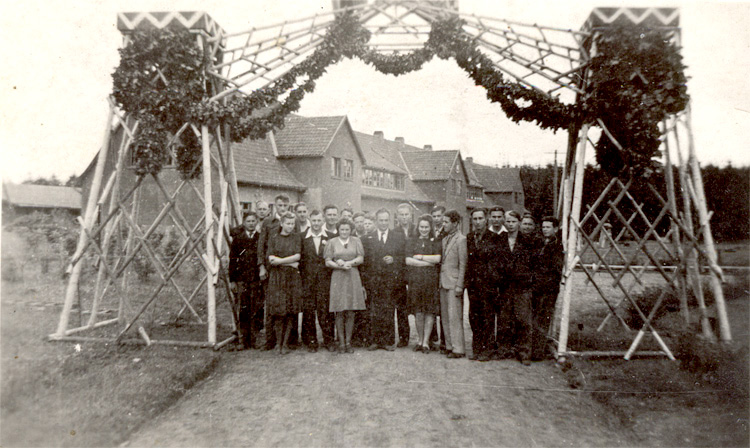


Photo from Mērija Jānītis
ID 1317
Murwik DP Camp gates
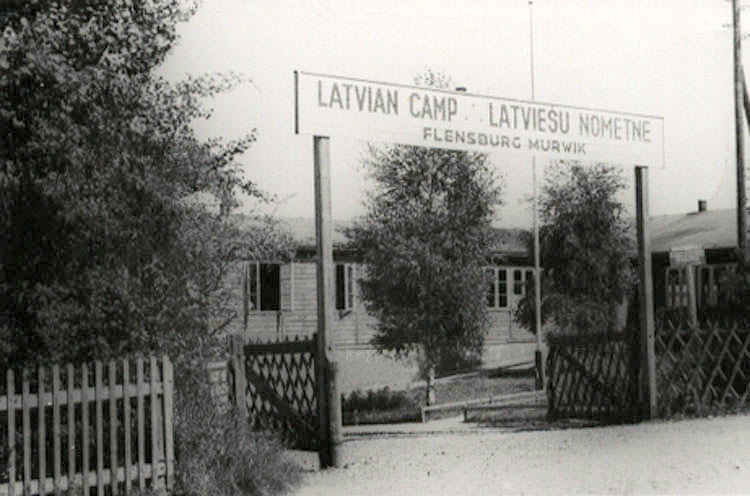


Photo from Ints Tumilovičs
ID 249
In front of the Mannheim DP Camp gates



Photo from Elizabete Mucnieks
ID 1008
Pegnitz DP Camp
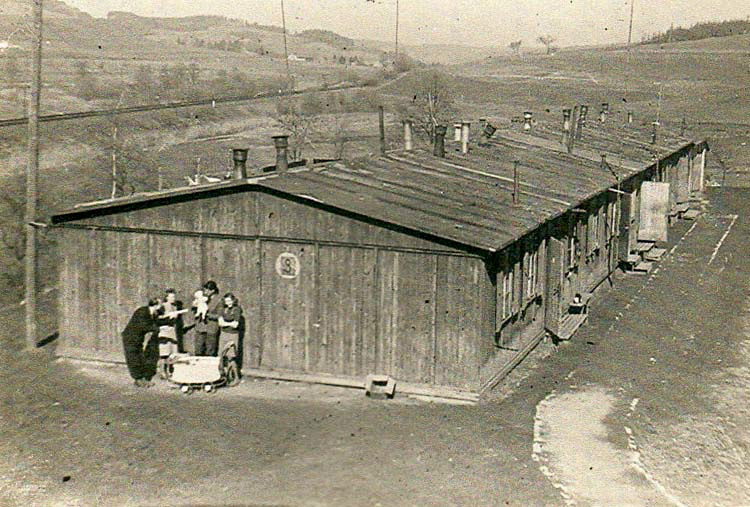


Photo from Ausma Tuims Wilson
ID 1811
Hochfeld Camp
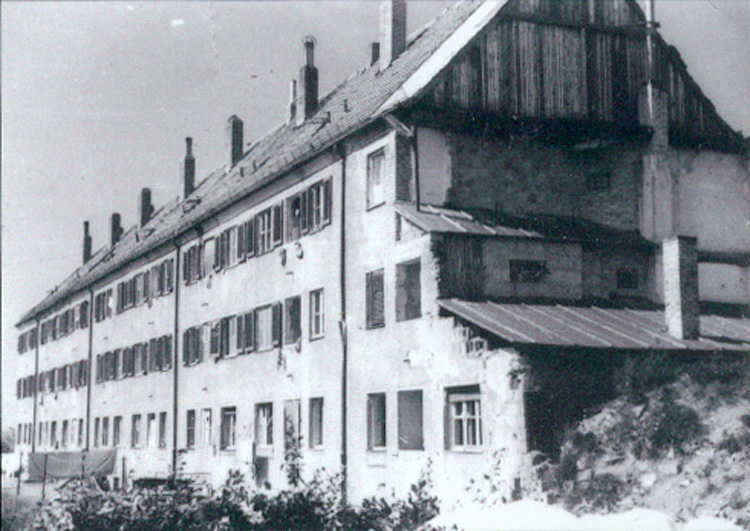


Photo from Ārija Gulbis Saleda
ID 1114
Greeting representatives of the IRO
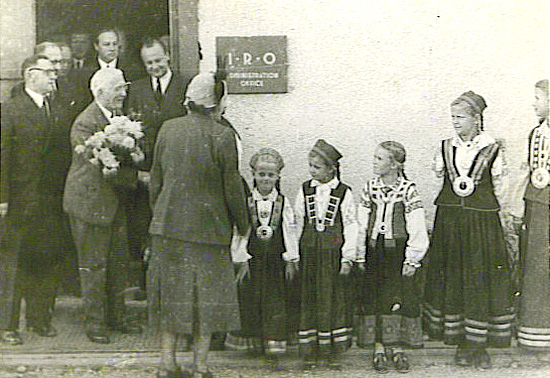


Photo from Biruta Ozols
ID 1146
The mayor of New York Laguardia visits the ACCU Camp
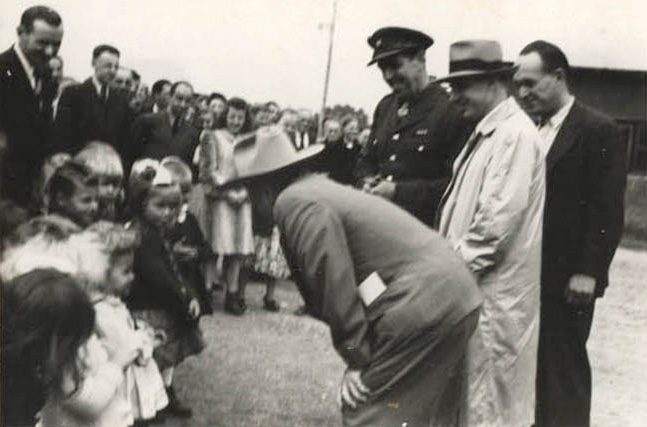


Photo from Jānis un Regīna Lielkājs
ID 1929
Kārlis Zariņš, Latvia's Ambassador to the UK visiting the Viesturs company
